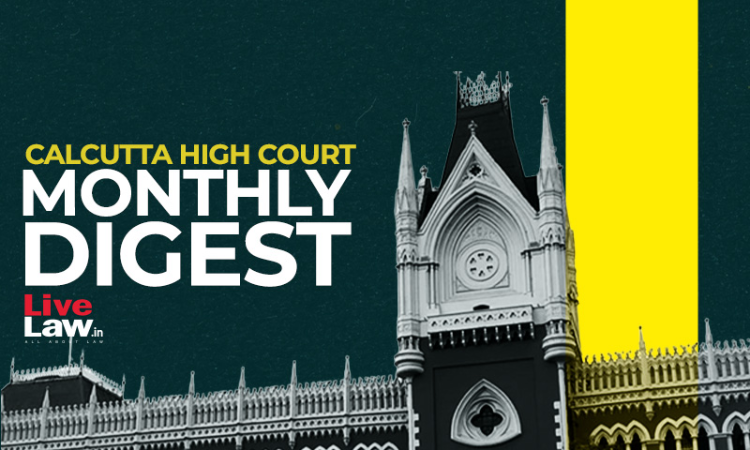- Home
- /
- High Courts
- /
- Calcutta High Court
- /
- Calcutta High Court Monthly Digest:...
Calcutta High Court Monthly Digest: July 2023
Srinjoy Das
2 Aug 2023 9:30 AM IST
NOMINAL INDEX (Citations 180-201)The New India Assurance Co. Ltd. v Winsome International Ltd. 2023 LiveLaw (Cal) 180State Of West Bengal And Ors. Vs Sirajul Islam Gharami And Ors. 2023 LiveLaw (Cal) 181National Human Rights Commission and Ors v The State of West Bengal 2023 LiveLaw (Cal) 182Texmaco Rail and Engineering Limited & Anr v Union of India and Ors 2023 LiveLaw (Cal) 183Tushar...
Next Story



